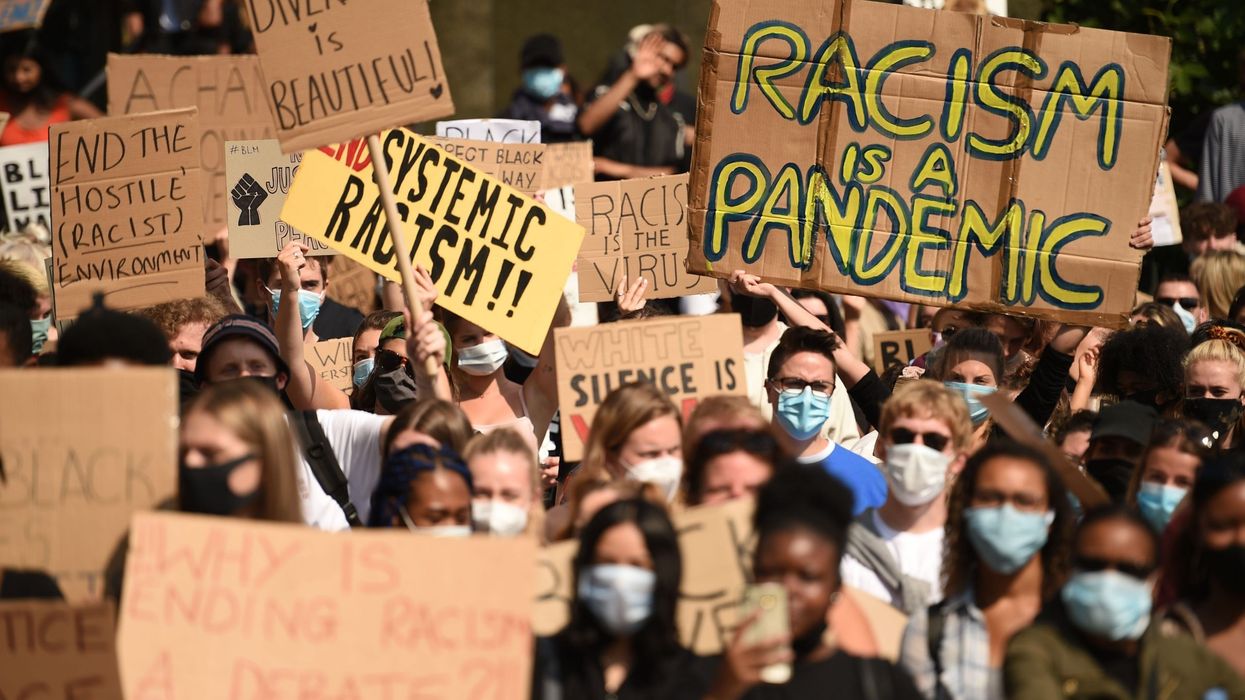LAWYERS and police chiefs have warned British Asians that using the word “coconut” as a slur towards another person risks breaking hate crime laws.
They said the jibe, often used towards BAME people by members of their own community, accusing them of shunning their heritage to get ahead, may incite racial or religious hatred.
The term has been used against Asian MPs on social media in recent times, along with the authors of the controversial government-backed report into racial disparities in the UK.
The report in March by the Commission on Race and Ethnic Disparities, which did not find evidence of institutional racism in areas such as policing and health, was widely condemned for its findings and errors.
One tweet used the slur against a senior cabinet minister, accusing them of carrying out “the Tories’s dirty work so nobody can accuse them of being racist”.
Labour MP Khalid Mahmood, who has suffered online abuse, recalled how he has been called “Uncle Tom”.
He explained the phrase is used “if someone believes you are ‘too white’ in your policy and not of the community you are from when we all live in one society”.
Jo Sidhu QC, vice-chair of the Criminal Bar Association, told Eastern Eye: “Society is constantly trying to balance the right to free speech against the right not to be insulted on the grounds of one’s race.
“Calling someone a ‘coconut’ is a deeply offensive slur and can result in a criminal prosecution.
“It is using someone’s colour to attack them just because you disagree with their politics or views.
“It doesn’t matter if you share the same race as the person you are insulting.
“And, if you use social media, then the evidence is there for all to see, including the police.”
Paul Maleary, who made hate crime charging decisions for the Metropolitan Police, warned in April that “coconut individuals” was a racially derogatory term and calling MPs that “could be considered incitement to racial hatred”.
In 2010, Liberal Democrat councillor Shirley Brown used the phrase to describe her Tory opponent Jay Jethwa, after she backed spending cuts for ethnic minority projects at a Bristol City Council meeting.
Brown was found guilty of racially aggravated harassment and given a 12-month conditional discharge sentence.
Weyman Bennett, co-convener of the Stand Up to Racism group alongside Sabby Dhalu, told Eastern Eye: “I have been called it. It is a term of abuse, but one of the realities is the [Commission on Race and Ethnic Disparities] report was denying the existence of institutional racism.
“It is the gaslighting of black communities, (of) people who have done well, got good jobs, but without understanding the disproportionate treatment.
“What is generating discontent is the sense that people feel they raise racism and Islamophobia and are told, ‘nothing to see here’.
“We are against all forms of abuse, but we have to deal with the underlying real problems.”
Some 77 per cent of Britons said making assumptions about someone’s behaviour based on their race is a form of racial discrimination, according to a YouGov poll last year. And 65 per cent of people from an ethnic minority background have heard someone telling a joke about their race.
Bennett added: “It is not the same as the P-word or N-word, it’s [used] out of frustration on their arguments being dismissed.
“The [Commission on Race and Ethnic Disparities] report cost millions of pounds and the [suggestion] was, ‘you’re to blame for your own problems’.
“I have heard it a lot in schools. It is not an excuse to be abusive, but just don’t dismiss my lived experiences either.”
Dr Tina Mistry, a clinical psychologist in Birmingham, said she sees clients in therapy who struggle with their identity because of dangerous stereotypes.
She said: “They prevent people from being their true authentic selves because they feel as though they have to fit a very narrow mould. People need to realise that [words like coconut] can have a major impact on a person’s sense of identity.”
MP Mahmood called for social media companies to do more to ban abusive people.
He said, “One of the negative sides of social media is people using pseudonyms and feeling like they can abuse who they want anonymously. People have to take responsibility for their actions. They wouldn’t do that in normal life or public meetings, there would be sanctions.
“Social media has to catch up. It hurts people trying to do their job.
“You have to block that person from doing it in the first place and catch them through their computer IP address.”
Kamran Uddin, a writer and mosque volunteer, said: “I can see how use of the term ‘coconut’ can be regarded as a hate crime, as it points to an individual’s race and suggests they’re a ‘sell out’.
“I would urge Asians passionate about an issue to air their concerns in a professional way rather than resorting to verbal abuse.
“The root of this issue, I think, comes down to people thinking Asians or certain ethnic minorities are just one homogenous group that think and behave in the same way because of their international or foreign backgrounds.
“We have to be more savvy in using our vote when electing political candidates, even if we think they have the same values and ideals as us.”
The Home Office said any hate crime was unacceptable and the department was committed to tackling it.
A spokeswoman added: “Hate crimes are those crimes which include hostility based on race, religion, sexual orientation, transgender identity and disability. Something can only be recorded as a hate crime if a criminal offence has occurred."




